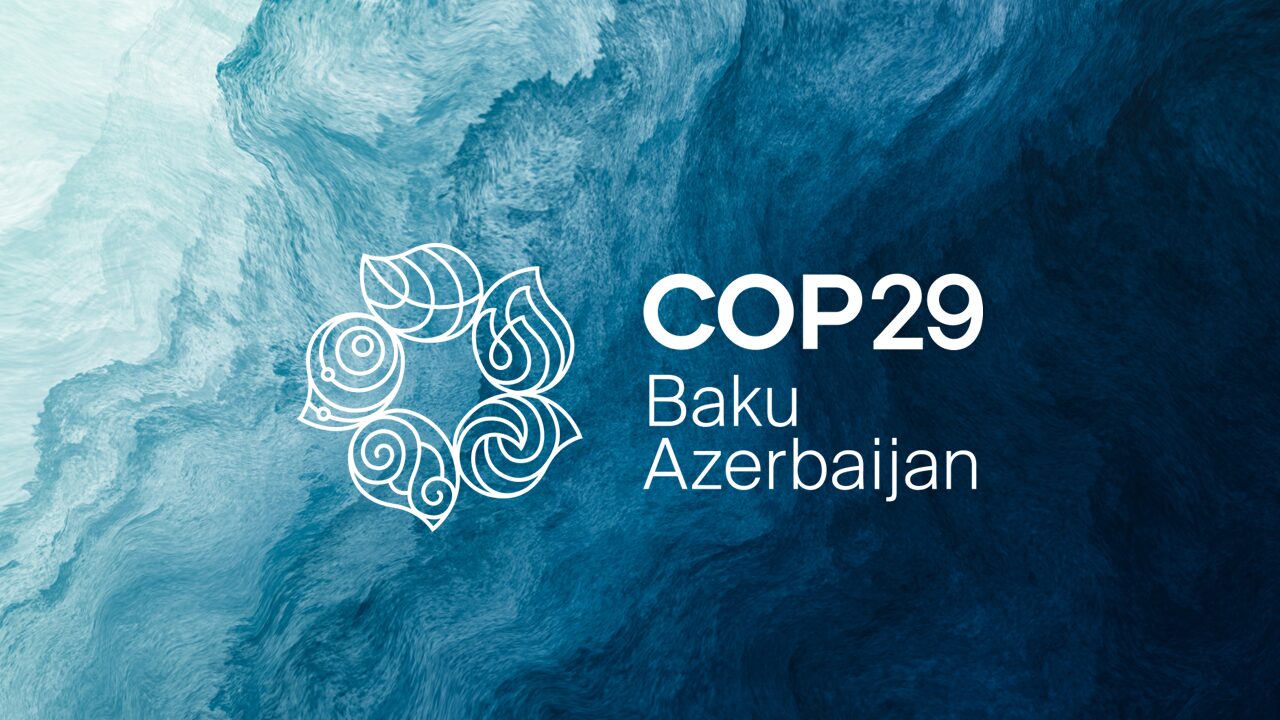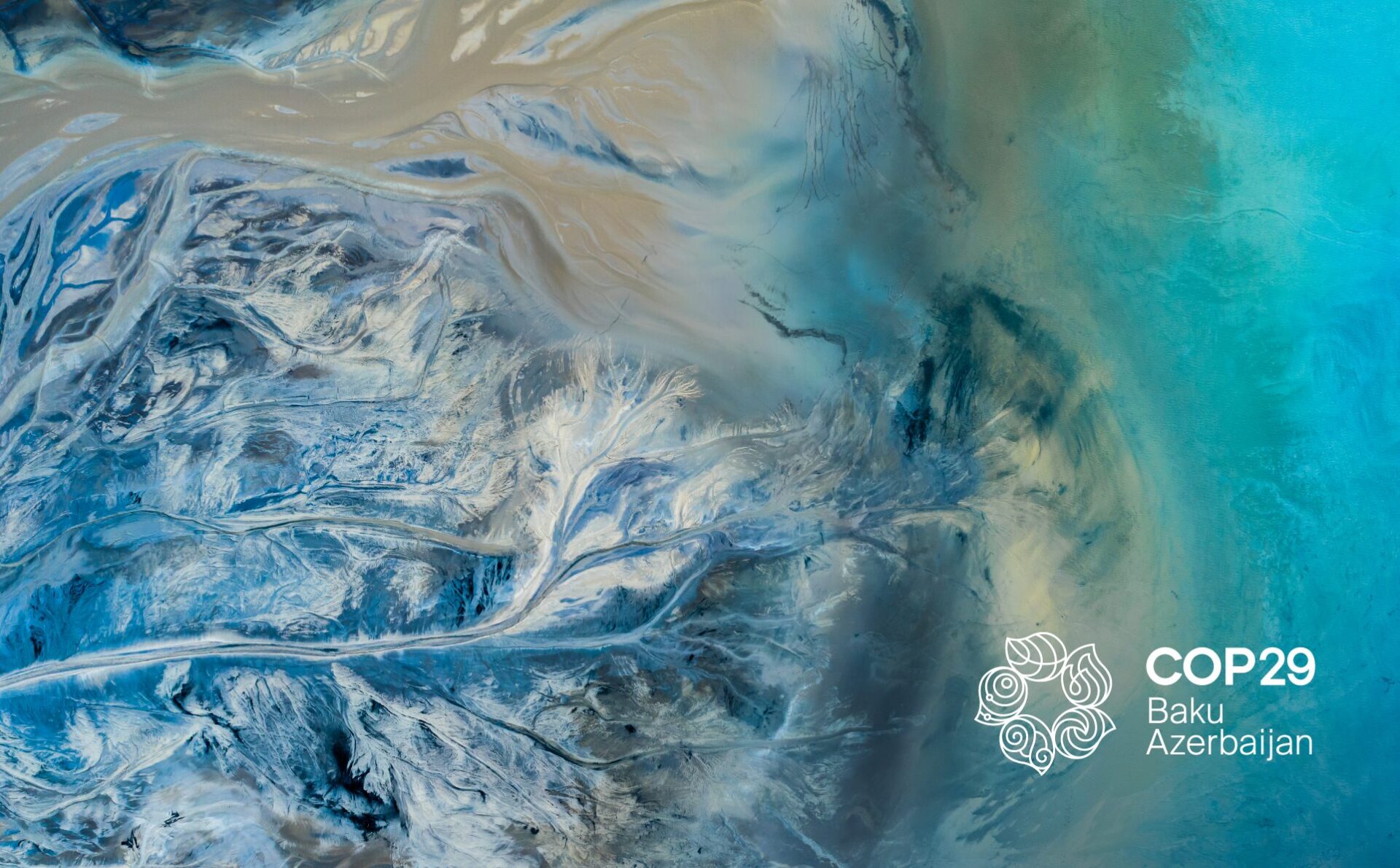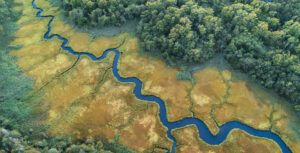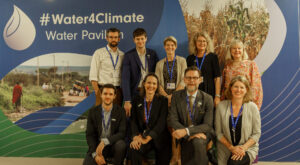Water for Climate in Baku
“When you get others on board who are not from the water sector to be champions for water within their spheres of influence, it has much broader impact.”
Supporting impactful policies
The ambitions of the collective are high: “At COP we offer capacity development, but also try to take an influencing role. We want to situate good water management as a solution to climate challenges”, outlines Dani.
Over time, the project has been learning and adapting: “Each iteration we are trying to push the boundaries of what is possible a bit more.” At last year’s conference, the water community took a much more outward looking approach which led to the fostering of conversations around the nearly 150 water-related events taking place outside of the Water for Climate Pavilion. This is a success that Dani hopes to repeat: “We will, amongst other things, rely on our envoys to follow and connect with other communities at COP such as oceans and Indigenous communities.”
This year’s Water for Climate Pavilion is focusing its work through ten working groups that are directly linked to UN Framework Convention on Climate Change (UNFCCC) mechanisms or Presidency initiatives, such as the GGA and Nationally Determined Contributions (NDCs): “The working groups are meant to exist beyond this year’s COP. We asked them to set long-term collective goals and develop workplans to realize them, using the COPs and other platforms as stepping stones on an ongoing basis.”
Looking ahead at the negotiations, Dani outlines: “This year is an interim COP, and this means the discussions are oriented in a different way. There is a two-year process on the GGA, which will continue at COP29 and COP30. Additionally, in February, countries will present their revised NDCs. At COP, we are providing counsel on how water can provide more impactful climate solutions in connection with National Adaptation Plans, NDCs, and other processes. We see this COP as a springboard to do something impactful at COP30 in Brazil.”
Building on the outcomes of COP28
Outside of the Water for Climate Pavilion, SIWI engages amongst other things through the Marrakech Partnership for Global Climate Action (MPGCA). The MPGCA is an official UNFCCC mechanism intended for non-state actors established with the Paris Agreement at COP21: “At the time, we were on a course to a four degrees temperature rise. With Paris came the acknowledgement that countries cannot respond to climate change alone,” says Maggie White, Senior Manager at SIWI.
The partnership helps to “show why it is important to engage with non-state actors and facilitates this.” Within the Partnership, SIWI serves as a focal point for water and also coordinates the water agenda within the Sharm-El-Sheikh Adaptation Agenda (SAA): “Over the years, we were able to highlight why water is important for other communities. I can really see now how the seed of bringing water to other thematic areas has picked up. It is coming more naturally that people working with nature, food, energy, oceans and human settlements recognize water and its importance in their thematic work”, outlines Maggie.
“It is coming more naturally that people working with nature, food, energy, oceans and human settlements recognize water and its importance in their thematic work.”
At COP29, SIWI organizes the MPGCA Water Action Event: “We will focus on three key initiatives that were launched at COP28: the Freshwater Challenge, Urban Water Resilience, and Water for Resilient Food Systems,” says Maggie. She adds: “The initiatives are currently not all at the same level. This is an opportunity to discuss where challenges lie and how the initiatives can be reinforced, scaled up and interconnect with other processes and stakeholders.”
Together with the Alliance for Global Water Adaptation, SIWI will further organize an official side event at COP on the theme of “Freshwater solutions to enable effective and resilient climate mitigation action.” The event will build on key results from last year’s conference such as the United Arab Emirates Consensus and discuss water’s essential role in climate mitigation.
As part of SIWI’s efforts to connect global processes, World Water Week’s Director Susanne Halling Duffy, will attend COP29 to build connections ahead of next year’s World Water Week. The conference will take place between 24 and 28 August in Stockholm and online with the theme Water for Climate Action.
“Achieving impactful climate action is a continuous effort and no one conference will give us the magic solution. Instead, we must work together to maintain momentum throughout the year. World Water Week in August is a key event on the annual agenda for water and climate and serves as an important build-up to COP. In Baku I look forward to strengthening this relationship further,” says Susanne.
SIWI at COP29
Follow us in Baku for a series of events, online and on-site, where SIWI and partners will voice the critical role of water in effectively addressing climate change.
Join SIWI at COP29








